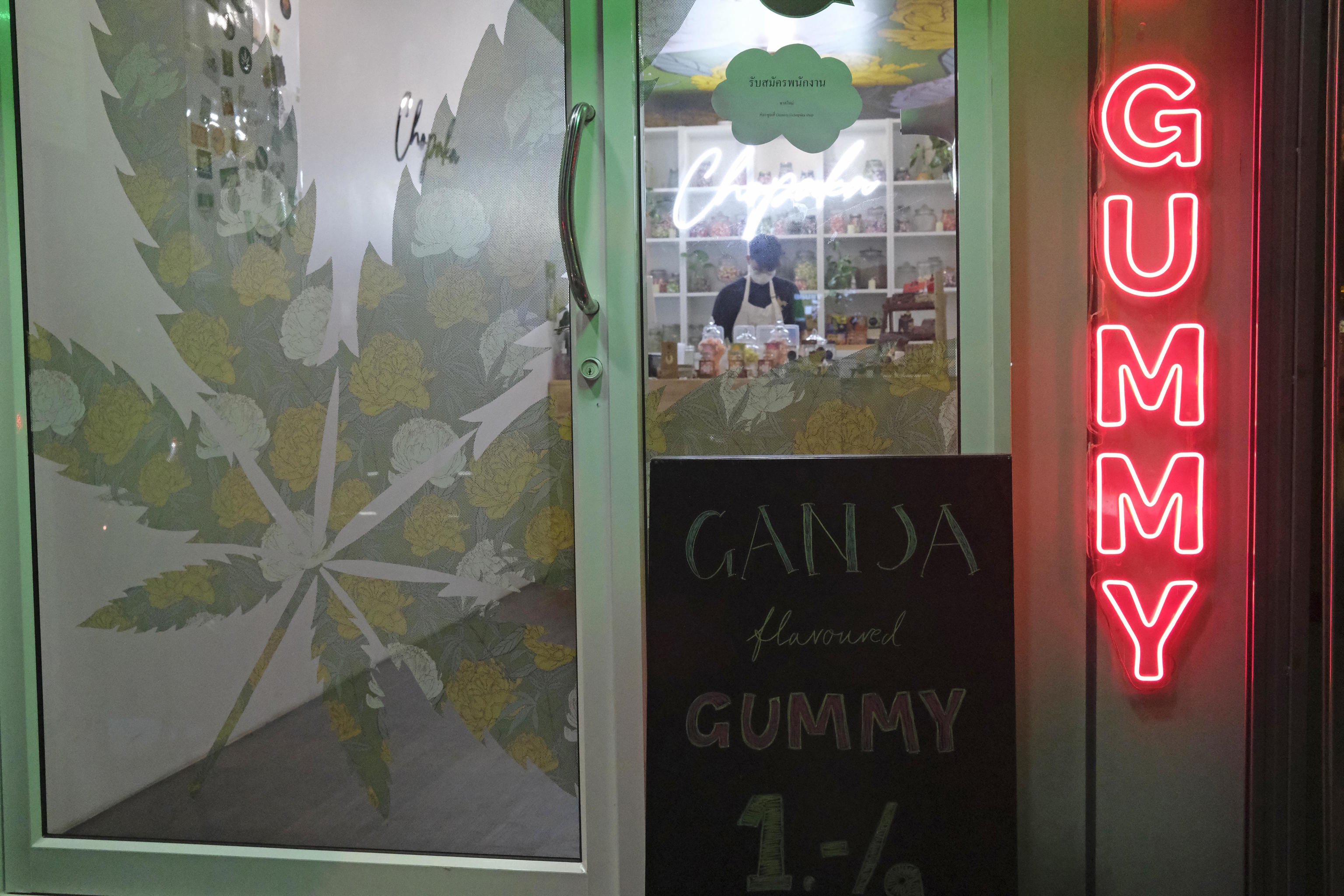Bella Culley, an 18-year-old from Billingham, in the northeast of the United Kingdom, was arrested on May 11 at Tbilisi airport in Georgia with 14 kilos of cannabis and hashish. A few hours earlier, at the airport in Sri Lanka, another young woman from London, a 21-year-old flight attendant named Charlotte May Lee, was arrested carrying over a million euros worth of cannabis in her hand luggage.
These two stories, although separated by more than 5,000 kilometers, share the same starting point: Bangkok. Both British women were on vacation in Thailand and departed from the capital of the Buddhist kingdom loaded with bags of kush, a popular variety of indica marijuana that originates from the border region between Afghanistan and Pakistan.
Since June 2022, when Thai authorities decriminalized cannabis, kush can be found in legal marijuana dispensaries throughout the country and in an unregulated kind of street market that is easily found in the most touristic cities. It is sold very cheaply, like the rest of the varieties, in small bags of a few grams or in pre-rolled joints. That summer three years ago, Thailand earned the label of being the new Amsterdam of Asia.
The ease of obtaining marijuana has been an additional incentive that has pushed many backpackers towards Bangkok, the paradisiacal islands, or popular inland destinations like Chiang Mai. Marijuana had been removed from the list of narcotics, and the purpose of this measure was for Thailand to enter the multibillion-dollar medicinal cannabis market, but recreational use fell into a legal vacuum. Criminal networks quickly took advantage of this, seeing a great opportunity to export cannabis from the country to other parts of the world using tourists as mules.
Bella and Charlotte, the two British women detained in Georgia and Sri Lanka, had been posting images and videos of their idyllic vacations in Thailand on their social media. Now, both face up to a life sentence for illegally possessing and importing large quantities of the narcotic in vacuum-sealed bags.
There have been many cases of young foreigners who were tourists in Thailand, especially British, and who have ended up detained during layovers on their way back to their countries with large amounts of marijuana in their suitcases. Last year, the UK National Crime Agency (NCA) issued a warning about severe prison sentences for those bringing cannabis from the Asian country.
"There has been a drastic increase in the amount of cannabis seized at airports. In 2024, almost 27 tons were discovered, compared to just five the previous year and two tons in 2022," stated an NCA report.
The agency pointed out that of the 750 smugglers arrested at airports last year, 460 came from Thailand. From Bangkok, the Thai police reported a couple of months ago that since last summer, around 800 people, including 50 Britons, had been arrested for drug trafficking and more than nine tons of cannabis had been seized.
A highly publicized case was the arrest of former Arsenal footballer Jay Emmanuel-Thomas, accused by British police of smuggling cannabis. He left Bangkok and was arrested at Stansted airport in London with two suitcases containing a total of 60 kilos of cannabis.
Investigators say that traffickers often recruit their mules through social media - they especially look for profiles of very young and unsuspecting girls - and cover their travel and all expenses, plus an advance payment. The other method is the hunting of foreign tourists directly in Thailand. They offer to carry suitcases full of cannabis for payments ranging from 2,000 to 6,000 euros.
In recent years, criminal networks have taken advantage of the leniency of Thai legislation to turn the Southeast Asian country into a global center for cannabis trafficking to Europe. But their business is now threatened by the radical shift that the government of Prime Minister Paetongtarn Shinawatra is making, trying to control an out-of-control industry estimated at 1 billion dollars.
A few days ago, new measures were approved to restrict cannabis consumption without a medical prescription. "Policy must return to its original goal of controlling cannabis solely for medical use," a government spokesperson said last weekend.
The Thai Ministry of Public Health aims to re-criminalize the drug and for the more than 18,000 licensed cannabis stores throughout the country to adapt to the new regulations. Local media have reported that part of the blame for this new restrictive policy finally going through after months of debate in Parliament lies with the United Kingdom. London has been pressuring Bangkok for some time to take action following the influx of backpacker mules used by traffickers.
